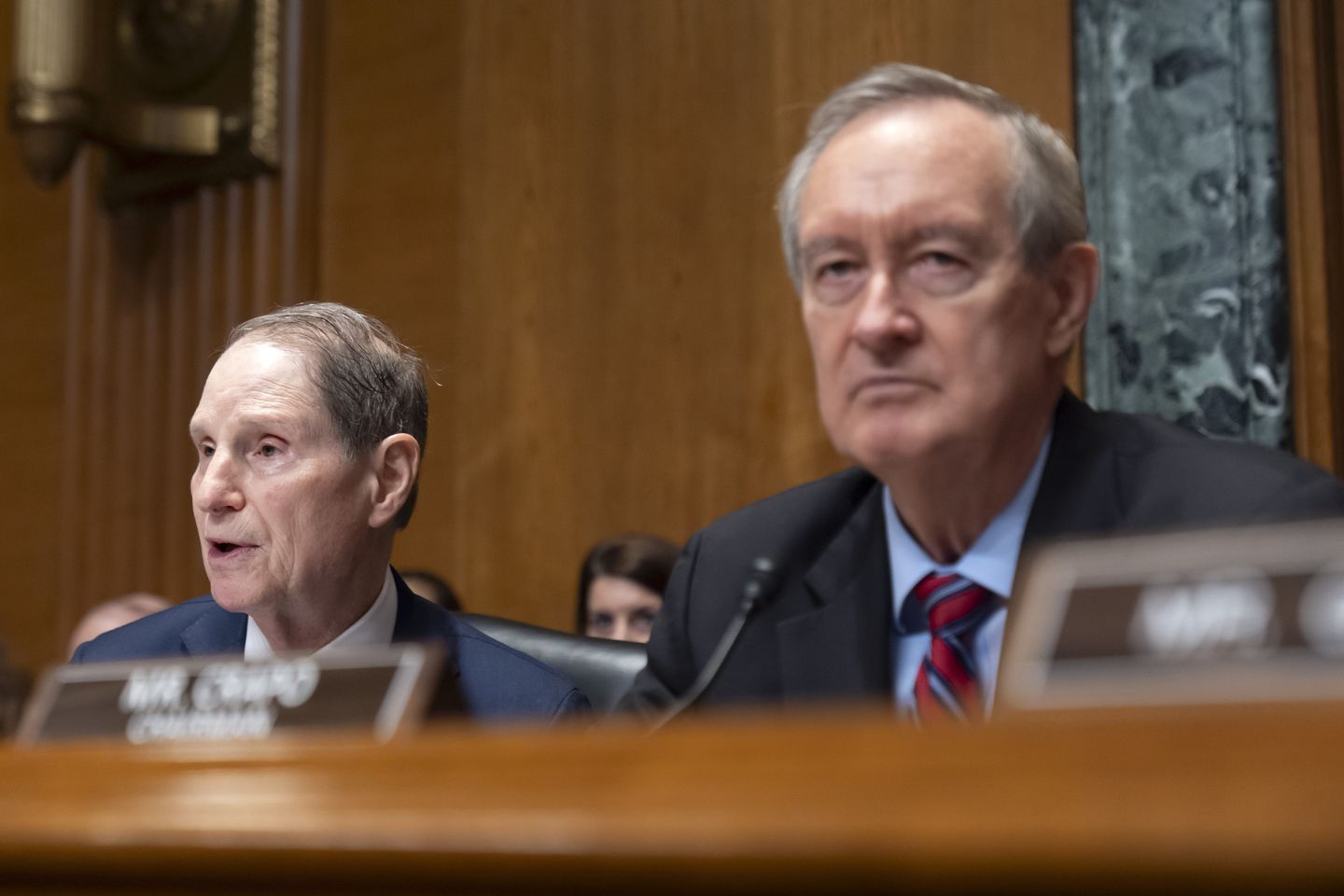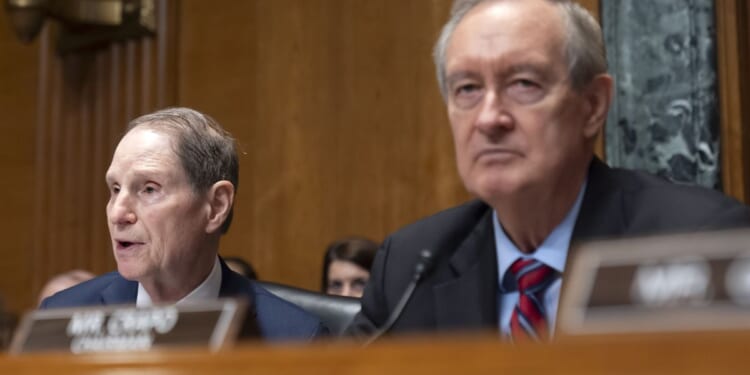
A Senate hearing on Wednesday on lowering health care costs underscored the deep partisan divisions that appear likely to prevent a compromise from coming together this year.
The Senate Finance Committee debate focused on short-term ideas for helping Obamacare enrollees whose out-of-pocket premium costs will double when enhanced subsidies expire Dec. 31 as scheduled, as well as long-term solutions for lowering health care costs for everyone.
There was no consensus on either. The long-term ideas were all over the place, and Democrats and Republicans disagreed on the best short-term aid.
“I’m not saying what the outcome is going to be right now,” Senate Finance Chairman Mike Crapo, Idaho Republican, said after the hearing, though he vowed to keep looking for a bipartisan solution.
Senate Democrats, who created the enhanced subsidies in 2021 and set the expiration date, said the only viable short-term option is to extend the subsidies.
“There is no way for Congress to put together a proposal in the next couple of weeks that’s going to help people in January,” said Oregon Sen. Ron Wyden, the top Democrat on the committee. “It just can’t be done. A clean extension this year, at the bare minimum, is what’s necessary.”
President Trump said Tuesday he won’t sign a bill that continues throwing government money at “big, fat, rich insurance companies,” so Congress shouldn’t waste its time on that. He called for a solution that sends money “directly back to the people” to negotiate and buy their own insurance.
Most Republicans agree they should not extend the enhanced Obamacare subsidies, arguing they only mask insurers’ gross premium price increases and the Affordable Care Act’s failure to lower costs.
“The expiring pandemic subsidies bear little responsibility in the 20% average premium increase … for 2026, but they do bear responsibility in destroying the market, increasing fraud and abuse, making Obamacare more dependent on taxpayers, raising health care costs over the long term and worsening our budget deficit,” said Sen. Steve Daines, Montana Republican.
Sen. Thom Tillis, North Carolina Republican, admitted the discussion brought senators no closer to any viable solutions.
“None of this has to do with anything that’s the least bit coherent strategy on how to really drop down health care costs,” he said.
Mr. Tillis was the only Republican during the hearing to express a willingness to temporarily extend the enhanced Obamacare subsidies so as “not to put the millions of people who come reliant on a fundamentally fraught program in a lurch.”
The Senate, as part of a bipartisan deal struck to end the 43-day government shutdown, is supposed to vote no later than the second week of December on a short-term plan.
Democrats get to put up a bill of their choosing, and Republicans may offer their own alternative if there’s no bipartisan agreement in what’s referred to as a “side-by-side” vote.
A bipartisan compromise that can get 60 votes needed to clear a filibuster in the Senate currently seems out of reach.
Sen. Bill Cassidy, Louisiana Republican, is pushing to spend the money that would otherwise go to continuing the enhanced Obamacare subsidies on pre-funded Health Savings Accounts, or HSAs, that pair with high-deductible but lower premium plans.
Other Republicans expressed support for that concept, but Democrats signaled no interest.
Mr. Wyden said it would not help “very vulnerable people” who need a small-dollar premium, and it would still benefit insurance companies. His staff released a report that notes UnitedHealth Group owns the company Optum, which administers a fifth of the country’s HSA accounts.
“These proposals right now have an awful lot of Trojan horses for big insurance,” Mr. Wyden said.
To the degree that Democrats were open to alternative proposals, they said those could not be implemented in time to help consumers currently shopping for insurance for 2026. Obamacare open enrollment is underway, and people have to select plans by mid-December to have coverage that takes effect at the start of the new year.
A witness for the Republicans, Douglas Holtz-Eakin, president of the American Action Forum, agreed.
“From the perspective of the 2026 plan year, the plans have been designed, the premiums have been set, many people have already enrolled and made their selections,” he said. “There’s very little that this Congress can do to change the outlook.”Democratic witness Jason Levitis, senior fellow in the Urban Institute’s health policy division, said it’s worth considering longer-term changes, but that both the calendar and the way the Obamacare marketplaces are built will not allow for a quick switch from the current ACA subsidies.
“Any change would require marketplaces to build, test and deploy new IT systems,” he said. “Many would also require rule-making and changes to state insurance regulations. By the time it’s done, open enrollment will be a distant memory.”











